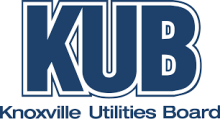Knoxville Utilities Board Marches Toward FTTH Network
With the Tennessee Valley Authority (TVA) and the state’s Comptroller’s office recent approval of the Knoxville Utilities Board (KUB) business plan, the city-owned utility proposal to build a Fiber-to-the-Home (FTTH) network in the Volunteer State’s third-largest city is set to take the next step.
Tonight, KUB will hold a hearing to get public input on KUB’s plan to bring high-speed Internet service to its 210,000 customers spread out across Knoxville, Knox County, and small parts of seven neighboring counties.
If the KUB Board of Commissioners approves the final plan, along with a needed two-thirds majority support from the Knoxville City Council, network construction could start sometime next year and would take about seven years to build out.
But it won’t come cheap. “We project that the cost to build out the network and ultimately staff and operate that network, estimated cost is about $500 million over the first ten years of operation of the business line,” KUB Vice President Jamie Davis told WATE 6 News.
Funds to construct the network would come in part from a 3 percent annual rate increase on KUB electric customers from 2022-2025. After 2025, KUB electric customers would see an estimated increase of $10.50 in their monthly electric bill, according to Knox News.
And the Survey Says…



